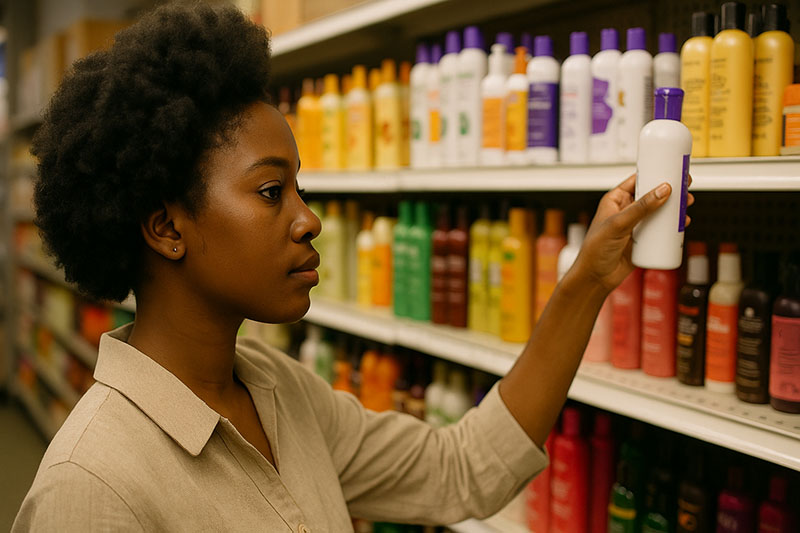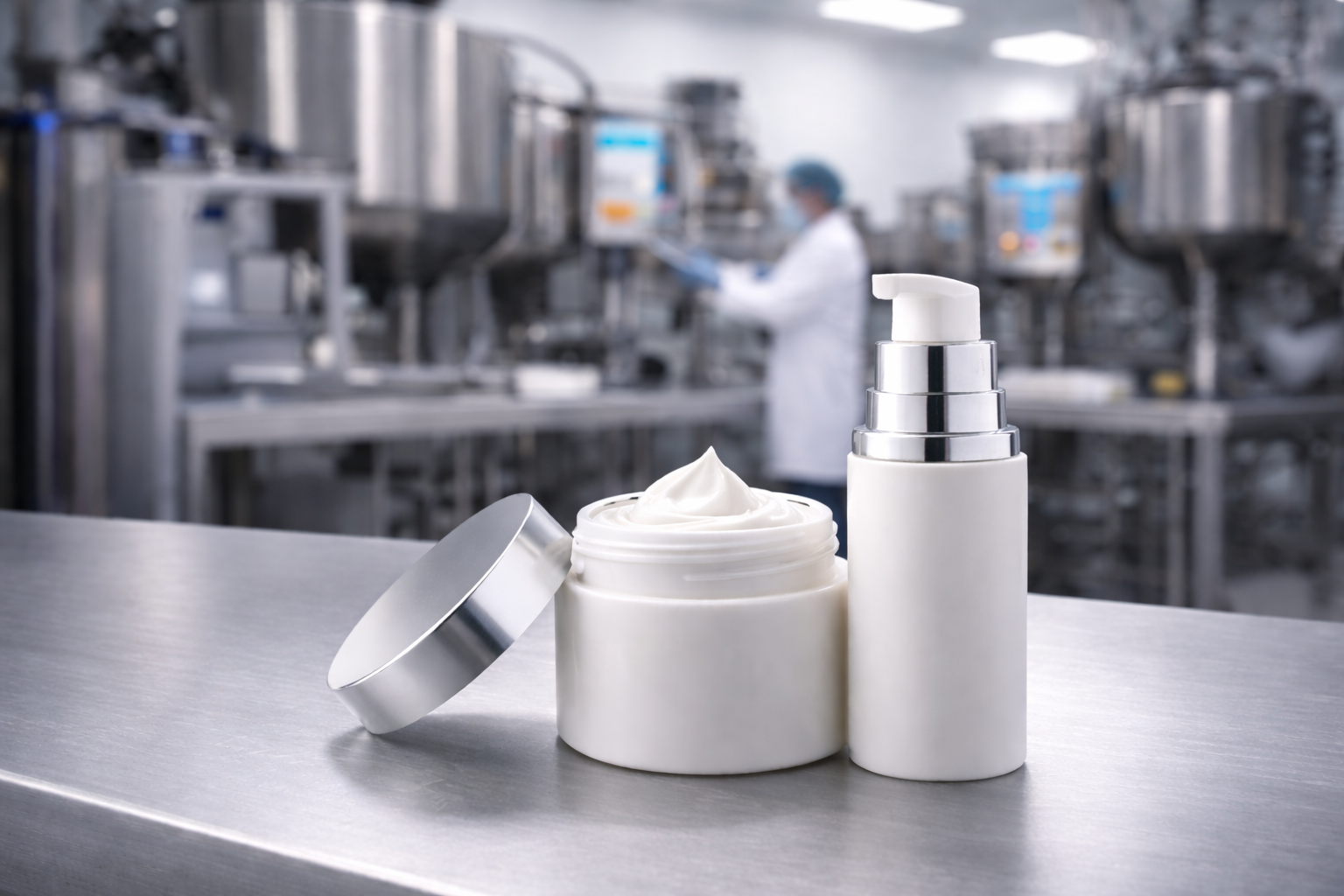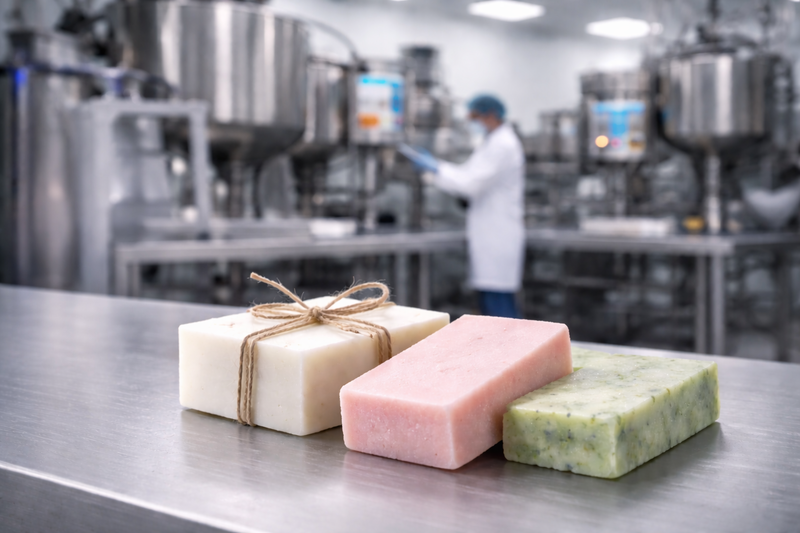Nigeria Hair Care Market Size Growth and Trends

Market size and growth snapshot
Nigeria is one of Africa’s largest beauty and personal care markets. Estimates based on Statista data show that hair care in Nigeria generated around USD 1.16 billion in revenue in 2023, with spend per person just over USD 5.
A more recent industry overview for West Africa’s beauty sector values the haircare segment at about USD 1.46 billion, confirming that hair is one of the most valuable personal care categories in the country.
Within Nigeria’s wider beauty and personal care products market, Deep Market Insights estimates total sales at USD 3.43 billion in 2024, projected to reach USD 5.15 billion by 2033, with haircare as one of the three core product pillars alongside skincare and makeup.
Specialised subsegments are also expanding quickly:
Natural hair care products: valued at USD 67.85 million in 2024, forecast to almost double to USD 131.21 million by 2033 (CAGR ~7.7%).
Luxury hair care: estimated at USD 141.45 million in 2024, projected to reach USD 295.3 million by 2033 (CAGR ~8.7%).
Euromonitor’s latest report confirms that hair care remains a major category within Nigerian beauty and personal care, with retail data tracked from 2019–2024 and forecasts to 2029.
Overall, despite macro-economic pressure, the medium-term outlook for hair care is growth in value, driven by price increases, premiumisation and rising demand in specific niches (natural, luxury, scalp health), even if short-term volume growth is more modest.
Macro context and consumer fundamentals
Several structural factors support sustained demand for hair care in Nigeria:
Large, youthful population – Nigeria has around 220+ million people and one of the youngest populations globally, with a median age of about 17.
Urbanisation and growing middle class – urban centres like Lagos, Abuja and Port Harcourt concentrate consumers with higher purchasing power and strong interest in beauty and grooming.
Cultural emphasis on appearance – grooming and hairstyling are deeply embedded in Nigerian culture, making beauty and personal care “everyday essentials” rather than discretionary luxuries for many consumers.
Digital and influencer economy – social media, especially Instagram, TikTok and YouTube, amplifies hair trends and product discovery, especially among young women and increasingly men.
At the same time, high inflation and currency depreciation have reduced disposable income in real terms. Euromonitor notes that in 2024 beauty and personal care grew strongly in value while volumes fell, as price increases outpaced consumers’ ability to buy the same quantities.
For hair care brands, this combination means:
Consumers still prioritise hair and beauty,
But they are price-sensitive, trading down, seeking promotions, and experimenting with smaller pack sizes and local brands.
Consumer segments and hair profiles
Nigeria’s hair care market is shaped by the diversity of hair textures, styles and lifestyles:
Women’s hair care (core segment)
Focus on afro-textured hair, protective styles (braids, twists, locs), weaves and wigs.
Split between consumers who chemically relax hair and those embracing natural styles.
Heavy users of shampoos, conditioners, hair oils, leave-in treatments and styling creams.
Men’s grooming
Growing interest in barbered looks, fades, waves and beard grooming.
Demand for 2-in-1 shampoo and conditioners, styling gels, pomades and scalp-care solutions. Euromonitor highlights men’s grooming as a category with “significant scope for expansion”.
Children & teens
Parents look for gentle, tear-free products and solutions that reduce breakage and scalp irritation, especially for girls’ natural hair or relaxed hair used for school styles.
Income tiers
Mass market: sachet formats and low-price brands sold via open markets and small shops, often bought weekly or bi-weekly.
Masstige & premium: mid- to high-income consumers, especially in cities, trading up to sulfate-free, organic or imported brands.
Luxury: small but rapidly growing niche, captured in the luxury hair care segment (premium and prestige tiers).
Product categories and usage
Key product groups include:
Shampoos and conditioners – everyday cleansing plus anti-dandruff, moisture, and colour-care claims. Both natural and luxury hair care reports identify shampoos as the largest revenue-generating segment.
Hair oils and leave-in treatments – very important for afro-textured hair; coconut, shea, castor, argan, and herbal blends are common. Awareness of the benefits of natural oils is a major demand driver.
Styling products – gels, creams, edge control, sprays and masks, used for braids, twists, locs, wigs and weaves. Styling products are forecast to be a key growth driver in the luxury segment.
Perms and relaxers – still dominant within traditional hair care according to Euromonitor, despite the rising natural hair movement.
Salon professional products – used in salons for relaxing, colouring, treatments and styling; distributed via professional channels and increasingly via specialised retailers and e-commerce.
A separate 6Wresearch report focuses on hair relaxers, noting:
Heavy reliance on imports (notably from China, Canada, France, South Africa and Japan),
Strong influence of global and local brands such as Dark & Lovely and ORS Olive Oil,
A growing shift toward “natural” and milder relaxer formulations amid safety concerns.
Distribution channels
Nigeria’s hair care distribution is multi-layered:
Traditional retail (small local grocers, open markets, kiosks)
Still the dominant channel for mass hair care, especially outside major cities. Euromonitor notes that small local grocers remain key for hair care, even as modern trade grows.
Modern trade (supermarkets, hypermarkets, pharmacy chains)
Expanding in urban centres, providing shelf space for global brands, premium products, and organised promotions.
Salons and barbershops
Crucial go-to points for relaxer services, colour, treatments, and product recommendations. Luxury hair care data highlights salons as the leading distribution channel for high-end hair products.
E-commerce and social commerce
Online hair and beauty sales in Nigeria are growing fast; Beauty West Africa estimates that online beauty sales are climbing at double-digit rates, with millions of consumers buying beauty and personal care products online.
Marketplaces (e.g. Jumia), brand websites and Instagram/TikTok storefronts are popular for both local and imported hair products, especially premium and niche brands.
Competitive landscape
The hair care market is highly fragmented, combining global, regional and local players:
Multinational companies
Global FMCG groups such as Unilever, Procter & Gamble, L’Oréal and Beiersdorf have a strong presence in Nigerian beauty and personal care, including hair care.
Iconic hair relaxer brands like Dark & Lovely and ORS Olive Oil remain widely recognised, particularly in relaxer and treatment categories.
Local and regional brands
Nigerian manufacturers such as Franemm Industries have built portfolios of relaxers, creams, oils and treatment products, often positioned as “authentic,” “science-backed” and tailored to local hair needs.
Numerous small brands focus on herbal, natural and organic hair care, leveraging shea butter, black seed, moringa and other regional botanicals. This aligns with a wider “A-beauty” (African beauty) trend globally, where African-sourced ingredients are gaining more recognition.
Professional and boutique brands
Brands serving salons with professional relaxers, treatments and styling systems have opportunities to build loyalty through education (stylist training, technique support) and better margins for professionals.
Competition is not only on price and branding but also on perceived safety, authenticity and performance for Nigerian hair textures.
Regulatory and supply-chain considerations
Hair care products in Nigeria are regulated primarily by:
NAFDAC (National Agency for Food and Drug Administration and Control) – responsible for registration and safety of cosmetics and personal care products.
Standards Organisation of Nigeria (SON) – sets quality and safety standards.
Customs regulations – govern importation of finished products and raw materials.
Recent policy developments and global debates affect hair care:
In 2025, Nigeria temporarily banned exports of raw shea nuts to encourage domestic value-addition and strengthen local processing of shea butter, an important ingredient in many hair and skin products.
Internationally, there is growing scrutiny of chemical hair relaxers and synthetic braiding hair, with recent studies and journalism highlighting potential links to health risks and toxic ingredients in products targeting Black women.
These dynamics create both risks (tighter regulation, consumer distrust of harsh chemicals) and opportunities (safer formulations, transparent labelling, locally processed shea and other botanicals).
Elevate Your Brand, Grow Your Sales
R&D support, stability testing, and compliance files aligned to your launch calendar—shortening time-to-market and accelerating revenue.
Key trends shaping the Nigerian hair care market
Natural hair movement vs. relaxer legacy
Euromonitor notes that perms and relaxers still account for a significant share of hair care, but growth is expected to slow as more consumers move toward natural or low-chemical styles.
6Wresearch observes rising demand for natural and organic relaxer formulations, as consumers become more ingredient-conscious.
Shift to natural and “clean” ingredients
Demand for natural, organic and eco-friendly products is rising across West Africa; haircare is a major beneficiary.
Shea butter, coconut oil, moringa, black seed oil and other African botanicals are frequently highlighted in marketing and formulation.
Premiumisation and luxury segments
Luxury hair care is growing faster than the overall market (CAGR ~8.65% to 2033), indicating more consumers are willing to pay for salon-quality and imported products.
E-commerce and digital influence
Online beauty sales are growing strongly, and social media is central to product discovery, tutorials and user reviews.
Male grooming and unisex brands
With changing attitudes and the rise of male beauty influencers, more men are investing in proper hair and beard care, opening opportunities for dedicated or gender-neutral products.
Challenges
Despite attractive fundamentals, brands must navigate:
Economic and FX volatility – high inflation, fuel price hikes and naira depreciation squeeze consumer budgets and raise import costs, leading to price hikes and down-trading.
Counterfeit and grey-market products – parallel imports and fakes undermine trust and can pose safety risks. Trusted distribution partners and visible authenticity measures are critical.
Infrastructure and logistics – moving products efficiently across a large country with uneven road quality and security challenges adds cost and complexity.
Regulatory enforcement and compliance costs – ensuring NAFDAC registration and adherence to evolving standards can be demanding, especially for small brands.
Strategic opportunities and recommendations
For companies considering entry or expansion in Nigeria’s hair care market:
Design for Nigerian hair first
Formulate specifically for afro-textured hair and common local concerns: dryness, breakage, scalp irritation, protective styling, and damage from relaxers or heat.
Offer routines (shampoo + conditioner + oil + leave-in + styling) rather than isolated products.
Balance affordability with perceived quality
Use tiered portfolios: sachets and smaller packs for mass buyers, plus larger and premium SKUs for supermarkets and e-commerce.
Highlight value (multi-benefit formulas, longer-lasting styling, reduced breakage) instead of competing purely on low price.
Lean into natural and safe positioning
Transparently communicate ingredients and avoid controversial chemicals where possible.
Build stories around locally sourced botanicals (e.g. Nigerian shea, plant oils), especially as government policy encourages local processing of shea and other raw materials.
Invest in salons and education
Provide training for stylists and barbers on product use, relaxer safety, scalp care and post-chemical treatment routines.
Use salons as both service points and retail hubs for home-care lines.
Build digital-first, community-centric brands
Work with Nigerian influencers and hair professionals to create tutorial content and “before-after” stories.
Make it easy to buy via links from social media to e-commerce or WhatsApp-based selling.
Plan for regulatory and ESG expectations
Maintain strong compliance with NAFDAC/SON rules and monitor emerging global concerns around chemical safety.
Consider fair-trade or community sourcing schemes for shea and other ingredients to appeal to both local and international consumers.
Conclusion
Nigeria’s hair care market is already a billion-dollar industry and continues to grow in value, supported by a young population, strong beauty culture and the rapid rise of digital commerce. At the same time, economic volatility, safety concerns around some legacy products, and intensifying competition are reshaping how consumers choose brands.
Companies that respect local hair realities, invest in education and safety, and combine affordable access with aspirational, ingredient-led storytelling are best positioned to win share in Nigeria’s evolving hair care landscape.
Table of Contents
Latest Blog Posts
Check out the latest industry trends and take inspiration from our updated blogs, giving you a fresh insight to help boost your business.



